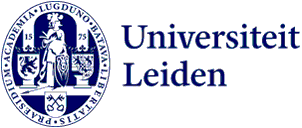
An EU with a higher EQ
How do you increase the EU’s EQ so that citizens and countries feel a greater sense of belonging and safety in the EU, and the countries work better together? To answer this question, Professor of European Law Armin Cuyvers works, among others, with social psychologists. Inaugural lecture on 9 December.
Collaboration between countries is vital, says Professor Armin Cuyvers, because only together can they tackle major challenges such as wealth inequality and climate change. A major hindrance is that voters and politicians often see this collaboration as a threat as it demands concessions in terms of sovereignty, participation and freedom. A concrete example is the friction between EU Member States in sensitive areas such as migration, nitrogen or the rule of law.

Emotionally effective
Cuyvers researches how law can help the EU and countries work together. He also calls this ‘symbiotic constitutional law’. The law connects countries and the EU but also offers fundamental safety to countries and citizens. What is special about Cuyver’s research is that he works with researchers from other disciplines. Together with social psychologists Naomi Ellemers and Daan Scheepers and PhD candidates Eva Grosfeld and Corlijn Reijgwart, Cuyvers looked, for instance, at how the EU’s legitimacy would increase if it were less of a threat to national identities and better aligned with the moral values of ordinary people. They are also looking at how these psychological insights can be incorporated into law. In other words: how to crank up the EU’s EQ.
People with a strong sense of national identity are not ‘against the EU’ at all.
Provide safe space
They discovered that people with a strong sense of national identity were not ‘against the EU’ at all. On the contrary, people with a strong sense of national identity thought the EU was more legitimate than people who did not have such a strong sense of national identity. Only when they feel as though the EU is a threat to their country’s identity, do they perceive the EU as less legitimate. The research findings show, says Cuyvers, that EU law should focus on reducing the threat and providing a safe space for national identity. What is more, EU law should focus on a dual identity. An identity that comes on top of national identity and in which this national identity is safe and recognisable.
About your interdisciplinary work: how was it to work with your colleagues from social psychology? Was it difficult to combine the two disciplines?
‘It was surprisingly easy to click. That was also because I was already familiar with their language from popular science books. Their concepts helped me with questions I couldn’t answer as a law professor. And the opposite was also true: they needed their concepts to have an immediate impact on the “real world”. And that is possible with law because law is a necessary means for really tackling societal challenges. If you want to work well with other disciplines, you have to bring together the concepts and methods from both academic worlds. For us that worked best by asking very concrete research questions. So, for example: “How can we make European law more legitimate?” Then you’re talking about the same concrete problem and your disciplines come together too.’
Is there more interdisciplinary research in the pipeline?
‘Definitely. Based on the previous research results, Naomi, Daan and I now want to find out how we can rewrite European rules in such a way that they are legally correct and at the same time psychologically less threatening to people. We want to measure this, for example, in mobile labs that travel to different parts of the Netherlands and hopefully Europe too. In these labs we will get participants to read two versions of legal texts – for example about how European law takes precedence over national legislation – while we measure their physical reactions (such as blood pressure and heart rate). Do people feel threatened when they read a certain version of a legal text? I think that we will be able to publish something about this in the course of 2024. For me personally it’s very “juicy” research. As a law professor, the scales fall from my eyes in studies like these. Where we have spent years trying in all sorts of ways to find out how to improve the legitimacy of texts, the social psychologists simply ask: “Have you ever asked people directly?”’
How optimistic are you about the future of the EU?
‘Optimistic but not naive. European integration is becoming deeper, for instance because of the current situation in Ukraine. There is more need for a bigger role for Europe, which is positive. But we do still have to adapt our national systems to this stronger European collaboration. Otherwise the gap will be too big. I therefore advocate, for example, revisiting the role of the Senate in the Netherlands so that it also monitors how the Netherlands collaborates at a European level.’
Text: Jan Joost Aten
